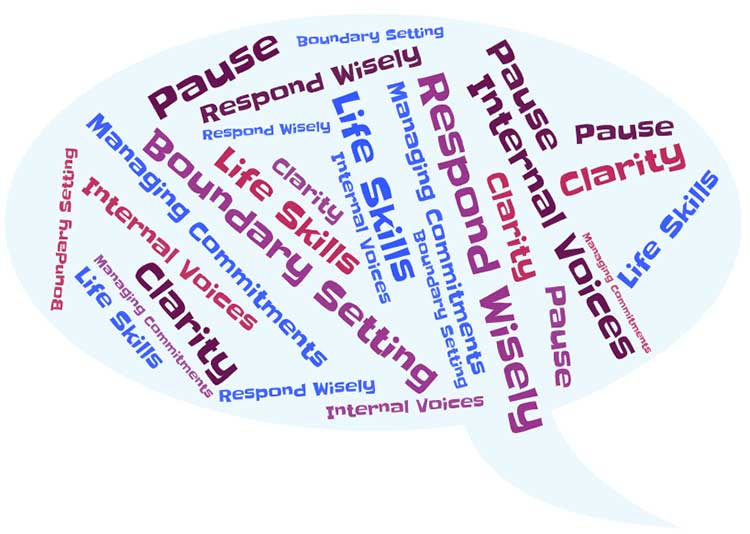Navigating Global Hierarchies Without Breaking a Sweat
LifeSkills Academy Blog
Check back often to find interesting information and updates.
Navigating Global Hierarchies Without Breaking a Sweat
Written by: Sandi MacCalla – Founder, LifeSkills Academy – 7/01/2025
“When in Rome, do as the Romans do.”
~ St. Ambrose
Understanding rank—whether it’s bowing to the boss in Tokyo or calling your CEO “Dave” in Sydney—can make or break your travel rapport. Venturing abroad, know whether a culture leans high (formal), low (informal), or moderate in hierarchy to avoid social stumbles and build genuine connections.

Here's what that means in traveler-friendly terms—minus the snoozefest.
🌍 Why Does Rank Matter When You Travel?
Whether dining with diplomats or asking directions in a subway station, how you approach others sets the tone. Cultures that value hierarchy tend to interpret deference as respect. In more egalitarian societies, that same formality might seem... stiff. (Think: wearing a tuxedo to a backyard BBQ.)
🔑 Global Ranking Cheat Sheet
✈️ Practical Tips for Rank-Savvy Travel
- Name That Title
- In hierarchical cultures, use titles and surnames: “Mr. Kim,” “Professor Dubois.”
- In egalitarian cultures, first names are often the norm—even in a boardroom.
Pro tip:In doubt? Start formal. You can always scale back. It’s harder to un-send an accidental “Hey dude!”
- Introduction Etiquette
- High-rank countries: greet the most senior person first. They may also be the one who speaks for the group.
- Low-rank countries: an enthusiastic group “hello” is perfectly fine.
- Where You Sit (and When You Eat) Matters
- In formal cultures like China or Japan, wait to be seated—spots are often assigned based on rank.
- Let the highest-ranking guest begin eating first. It’s polite... and it also gives you a clue which utensil to use.
- In laid-back settings like New Zealand or Norway? You’re likely fine snagging a seat and digging in.
- Who’s the Decision Maker?
- If you're pitching an idea or making a business request, know where the power lies.
- Formal cultures: Senior leaders make the decisions. Be patient.
- Informal cultures: Group input counts, and decisions might move faster.
This applies beyond business—think tour guides, hotel clerks, even customs officers.
- If you're pitching an idea or making a business request, know where the power lies.
- Need Help?
- In ranked cultures, approach senior staff or use formal requests.
- In relaxed cultures, people generally appreciate direct and friendly asks.
That said, tossing out a cheerful “Excuse me, would you help?” won’t offend anyone—but dialing up the formality in Tokyo versus Toronto can go a long way.
💼 When in Doubt, Mirror and Match
Watch how locals interact. If no one’s using titles or bowing, take a cue. Traveling with cultural awareness isn’t about being perfect—it’s about being willing. Willing to observe. Willing to adjust. And occasionally, willing to laugh at yourself when you accidentally bow... and someone offers you a high five.🌏✨
The world was my oyster, but I used the wrong fork.
Oscar Wilde
LifeSkills Academy features online classes in Etiquette/Social Intelligence, Financial Skills, and Adulting. Educators are business professionals who have proven success in the world of commerce. Join our email list to receive class details, blogs, and useful life skills tips.
Most Recent Posts ...
Posted on: 2/2/2026
Posted on: 1/26/2026
Posted on: 1/19/2026
Posted on: 1/12/2026
Search All Blog Posts
Blog Post Archive Categories
- AI as a Life Skill: Using Smart Tools Wisely, Well, and With Intention
- 2026 Will Reward the Prepared: Foundational Skills to Strengthen as You Step Into 2026
- The December Pause That Restores Your Peace and Strength
- How to Warm the Room Without Saying Much at All
- Financial Intel
- Boundary-Setting Skills Without Guilt or Pressure
- Halloween Etiquette: Teaching Respect and Community Spirit
- Words of Wisdom: Traveling 2024
- Thankful Thursdays
- My interview with Dennis Pearce




